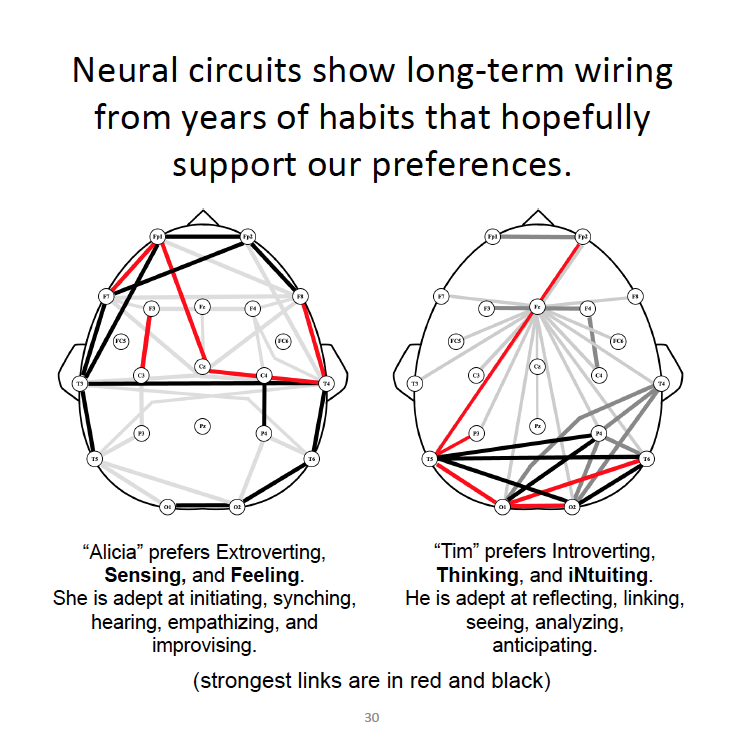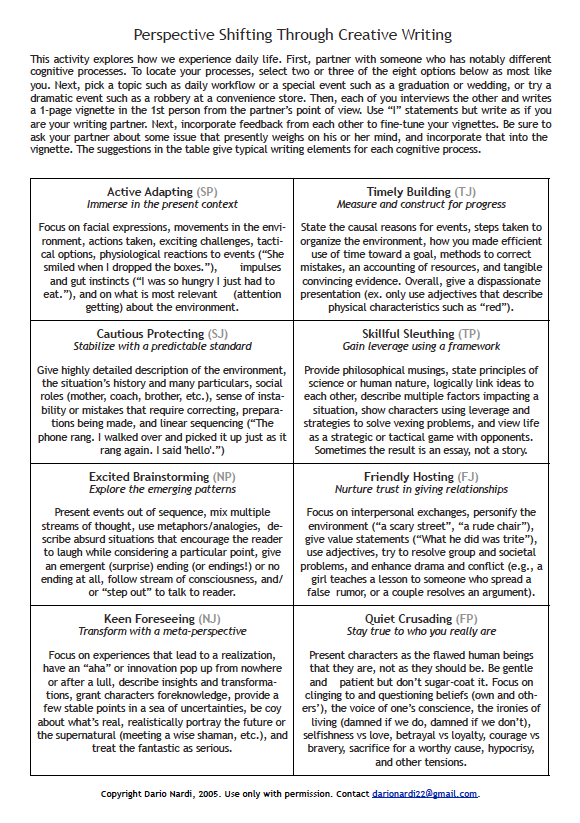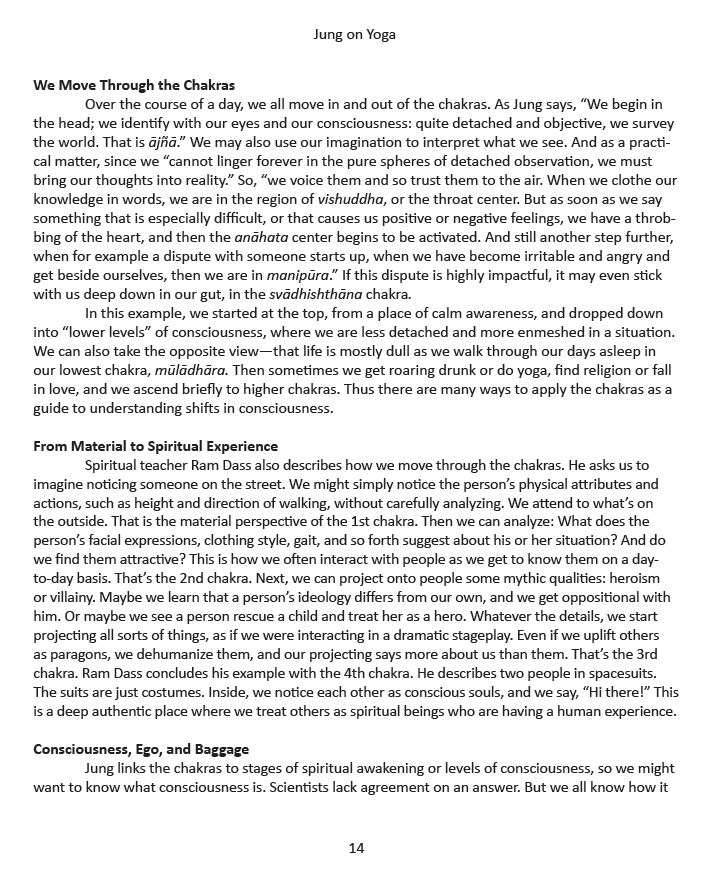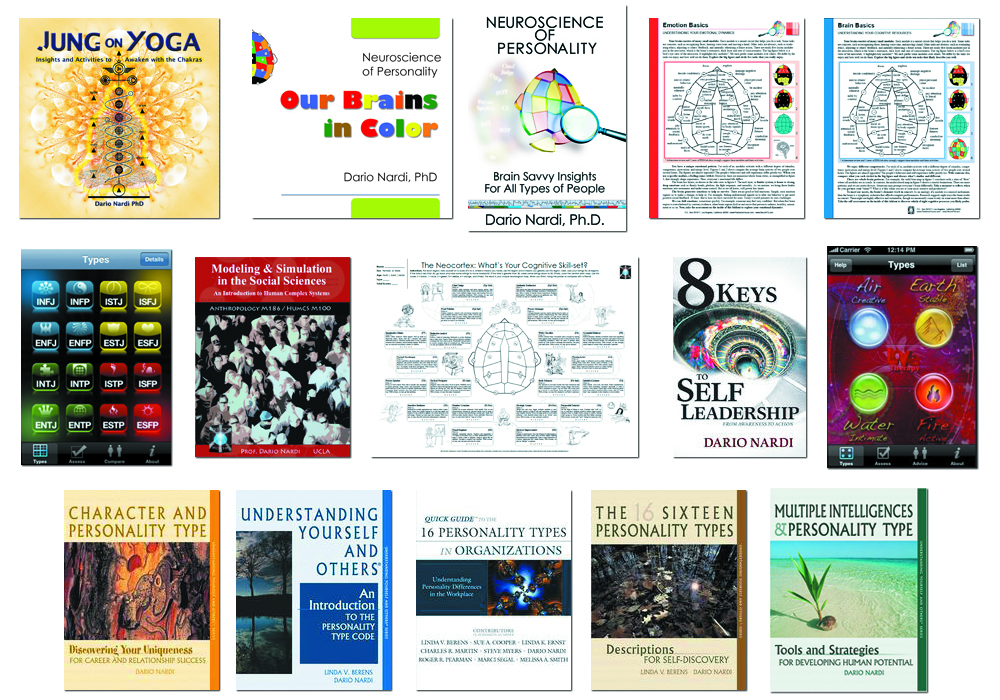I do have one more question. Or a few related ones.
You have mentioned your interest in personality models as therapeutic tools. I am often unimpressed with what passes for "therapeutic use" of MBTI on internet forums for a number of reasons, but foremost among them is that the way people appear to use MBTI ideas (and this is especially true for discussions that involve "the functions" or "stacks") is to latch onto whatever ideas "seem true", attempt to fit their problems into the current internet memes surrounding MBTI (such as "function loops", which has already been mentioned in this thread), and then looking for solutions that are premised on the "folk psychology" being true. To be clear, I don't see the problem with anyone speculating and introspecting based on internet-MBTI. It can be fun to imagine and wonder and conjecture. The problem, as I see it, is that often times function jargon impedes rather than facilitates self-discovery because it asks individuals to understand a system (of questionable truth value) and then fit themselves into that system rather than asking individuals to understand themselves. It reminds me a bit of Scientology, for example, in the sense that Scientology also markets itself as a therapeutic program, but whose underpinning may only have a, shall I say, weak relationship with reality. MBTI internet forums already had a brush with a strange, cult-y, abusive group in the past (the podlair people), so it's not much of a stretch to compare aspects of MBTI internet culture with aspects of Scientology.
What is your take on the memetic churn of internet MBTI forums/culture and the benefit or harm of questionable ideas being pursued for therapeutic use? Is it reasonable to expect untrained or "lay" people to be able to use therapeutic tools effectively? What do you think is the proper scope of beneficial therapeutic use of the MBTI and similar ideas? What are the dangers you see? Do you think it is dangerous to present MBTI conjectures as facts?
A really great question. For the most part, I share your concern.
Many clinical psychologists say they find little use in using Type, or at least the MBTI instrument, and would likely say that about Five Factor Model and such as well, though that's a guess. In some areas like careers or marriage counseling, I can see the benefit because bringing preferences into conscious awareness is a more natural fit. There, we're aiming to empower the person to make their own choices and/or engage in perspective shifting on their own. In contrast, in a psychotherapy session, the issues are often deep-seated and emotional in nature, beyond the scope of Type per se, though shadow work etc may be relevant. A number of type experts like Linda Berens and Eve Delunas have PhDs in Marriage and Family Therapy (MFT), so they can speak much better than I can. Personally, I never attempt any kind of therapeutic process with people beyond offering some advice to a friend or doing a brain imaging session, which they understand is meant to be informative not therapeutic. It's not my area, and I follow the maxim, "first, do no harm". With regard to the 8 cognitive processes and all the nuance with it, well, that's beyond most people's interest; if I were to suggest a model, it would be temperament. It can be kept simple and it gets at needs and values. Connecting a person back to his or her essential needs has clearer therapeutic value. On the therapist side, they often know a host of models and techniques. I think therapists can benefit from knowing Type. When there's a natural fit between therapist and client, such as INFJ-INFJ, they may share blindspots. And when there's a big difference, such as INFJ-ESTJ, the therapist may wonder how to best engage and retain the client. Type can help there, not to say anything specific to the client, but to improve the therapist's other favorite tools.
I've looked at brain activity as therapists and coaches work with clients. I did this with Andrea Isaacs and 6 of her clients. We did 1 hour baseline EEG sessions. Then she did 1-hour therapy sessions (with me in the corner at the EEG monitor). And finally, we did follow ups the day after to see how well the client was able to evoke the resources still helped "install" for them the day (or two) before. I've done similar stuff in Prague and San Diego. EEG fluctuates and shows meaningful (relevant) changes during therapy sessions. I talked about those in detail in workshops and in "Our Brains in Color".
Like most of the folks who use Type in a professional capacity, I don't participate in the MBTI forums and online culture. While many folks are well-meaning, my time is better spent interacting with other professionals, doing research, and so forth. Also, there are some significant holes in the knowledge base amongst online communities, such as the existence of the MBTI Users Manual, CAPT and the MILO database, APTi.com, and so forth. From brief perusal over the years, it seems there's often tremendous speculation about topics like IQ and type without knowing the topic has already been researched and published.
From what I gathered, Jung took his ethical responsibilities as a therapist very seriously yet he didn't take his tools that seriously. He worked at a high epistemological level, well beyond where most people are. Only recently, as I've read more into Jung, delved into altered states of consciousness, and spent more time reading Peter Geyer' stuff, have I understand how Jung thought about things.
For "lay" persons, it can be helpful at times to know about basic therapeutic concepts like projection, so long as they stick to applying those tools to themselves. Isabel Myers' original two goals were to help people find satisfying careers and bring peace to the world through understanding. David Keirsey warned about the Pygmalion Project (the inclination to try to mold others to be like us, which is doomed). Type gives us a lens and language to actualize these goals. There are many tools that help with those goals. And if Type is being used otherwise, I'm unsure of its purpose. Perhaps it's most visible when someone bringing out Type in a heated spat with a loved-one. I literally have never done that. Very disrespectful, in my opinion. If Type helps you be more present, to build trust and respect with others, great. And when a relationship is strong, it can make for some fun conversations about differences. In all fairness, there does seem to be a "Type addict" phase that may occur naturally and people can move past. And out of compassion, I try to see how a misuse -- or simply, over-zealousness -- is part of a person's journey of discovery and growth using Type as a kind of
mandala. So the person who goes into developing a new theory or whatever is simply trying, perhaps unconsciously, to internalize the model and somehow grow from that.
I believe a person can hurt themselves in a bad relationship by using Type. What I mean is, Type becomes a reason to stay in the relationship by explaining away genuine issues and incompatibilities as mere personality differences. If your partner is hitting you, that's a red flag to leave, not a mere indicator of dysfunctional extraverted Sensing (or whatever). And there are some insane people out there. M Scott Peck said, based on his years as a therapist, that perhaps 20% of the population is dominated by psychopathy, though often they are still functional, and of course people can move beyond that. Many people as young adults have some kind of episode. Just stretch that out over years. I say this as a warning when trying to engage in amateur therapy.




